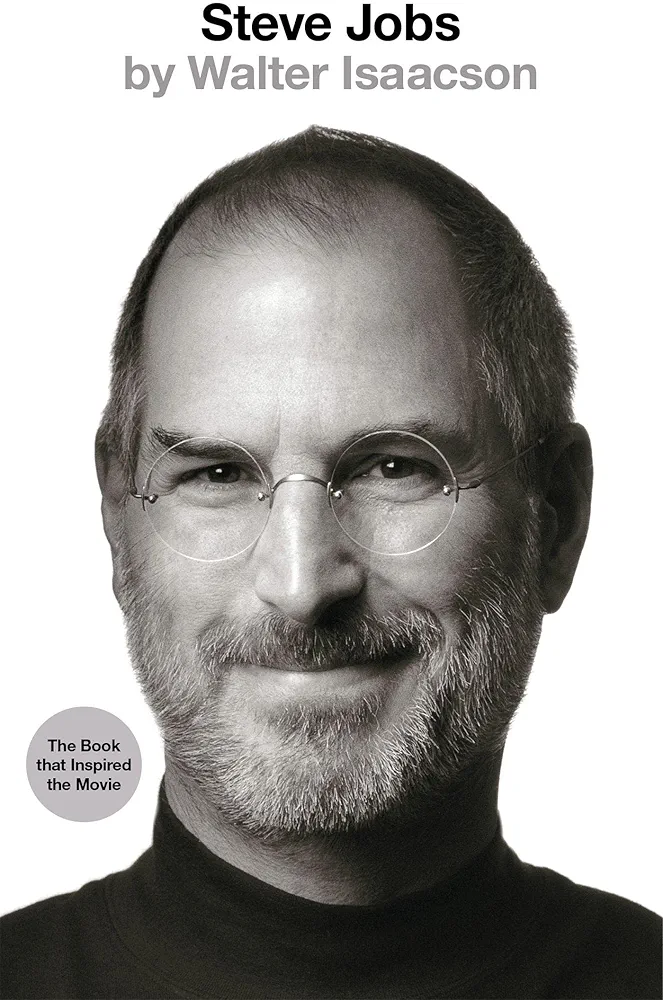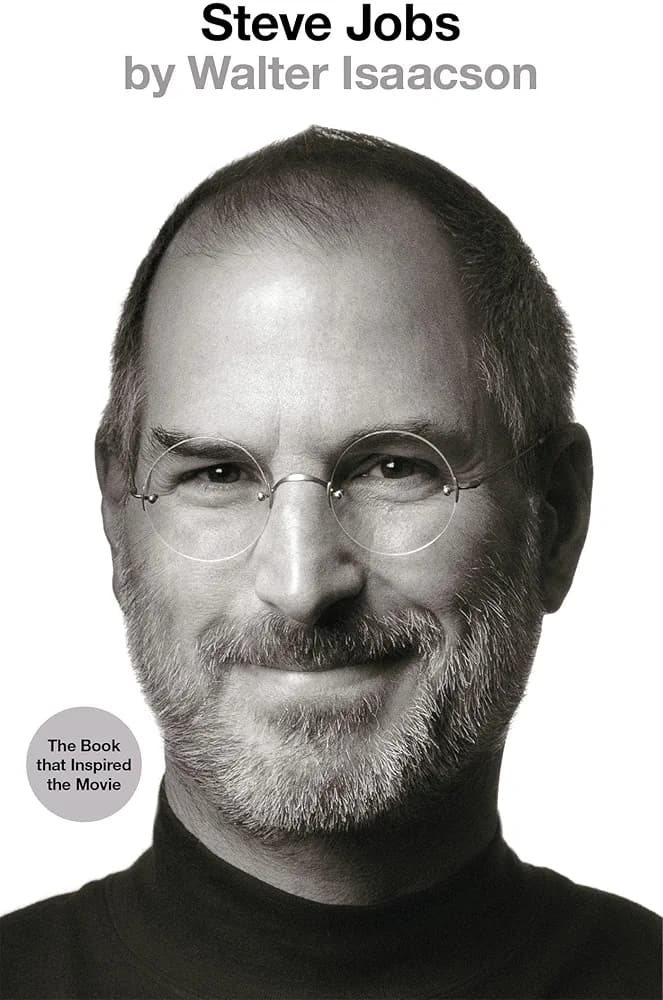Steve Jobs by Walter Isaacson – Biography Summary, Leadership Lessons & Innovation Insights

Steve Jobs by Walter Isaacson – Biography Summary, Leadership Lessons & Innovation Insights
by Arbind Singh
Steve Jobs by Walter Isaacson – Biography Summary, Leadership Lessons & Innovation Insights
Core Book Information
- Full Title & Subtitle: Steve Jobs
- Author(s): Walter Isaacson. Isaacson is a renowned American writer and biographer, a former CEO of CNN and editor of Time magazine. He is celebrated for his deeply researched, comprehensive biographies of other historical geniuses, including Benjamin Franklin, Albert Einstein, and Leonardo da Vinci, lending immense credibility to this work.
- Publication Details: First published in October 2011 by Simon & Schuster, just weeks after Jobs's death. The hardcover edition is substantial, at approximately 656 pages.
- Genre/Category: Primarily Biography. Secondarily, Business and Technology.
- Target Audience: An extremely broad audience, including entrepreneurs, business leaders, designers, tech enthusiasts, Apple fans, and any reader interested in the lives of iconic, world-changing figures.
Content Analysis
Central Thesis/Main Argument
Walter Isaacson’s central thesis is that Steve Jobs's ferocious intensity and often-brutal personality were not just flaws to be tolerated but were inextricably linked to his genius. His relentless drive for perfection, his binary worldview (seeing things as either "insanely great" or "total crap"), and his ability to bend reality to his will were the very forces that allowed him to fuse art with technology and push his teams to create transformative products that no one else could have imagined.
Key Themes & Concepts
- The Reality Distortion Field: This is perhaps the most famous concept associated with Jobs. It was his charismatic and overpowering ability to convince himself and others to believe in almost anything with a mix of charm, charisma, bravado, and persistence. This "field" allowed him to push employees to achieve seemingly impossible deadlines and goals.
- The Intersection of Arts and Technology: A core philosophy for Jobs, instilled by his early interest in calligraphy after dropping out of college. He believed that for technology to be truly great, it had to be intuitive, beautiful, and deeply connected to the liberal arts and humanities. This principle drove the design of the Macintosh and every major Apple product thereafter.
- End-to-End Control: Jobs insisted on controlling every aspect of the user experience, from the hardware and software to the retail environment. This "integrated" or "closed system" approach was in direct contrast to the open model of Microsoft and Android, but Jobs believed it was the only way to ensure simplicity and perfection.
- A-Player Mentality: Jobs believed that A-Players (top performers) love working with other A-Players and that B and C players drag everyone down. He was therefore ruthless in his hiring and firing, striving to surround himself only with the absolute best talent, famously saying it was better to have a "hole than an asshole."
- Focus and Simplicity: "Simplicity is the ultimate sophistication." Jobs's genius was as much about what he chose not to do as what he did. Upon his return to Apple in 1997, he famously slashed the product line from dozens of models to just four, saving the company by restoring its focus.
- Marketing as Performance Art: Jobs understood that how a product is presented is as important as the product itself. His iconic keynote presentations were masterclasses in storytelling and theater, creating a cult-like anticipation and desire for new Apple products.
Structure & Organization
The book is a comprehensive, cradle-to-grave chronological biography. Isaacson meticulously traces Jobs's life from his childhood (including his adoption and early tinkering with his father), through his counter-cultural youth, the founding of Apple, his ouster, his time in the "wilderness" with NeXT and Pixar, his triumphant return to Apple, and his final battle with cancer. The linear structure allows the reader to see how early experiences and obsessions shaped the man and the visionary he would become.
Critical Arguments/Evidence
The book's authority rests on its unprecedented access. Steve Jobs himself initiated the biography, granting Isaacson over 40 exclusive interviews. Crucially, Jobs gave Isaacson complete editorial control and did not ask to read the book before it was published. Isaacson also conducted over 100 interviews with family members, friends, colleagues (Steve Wozniak, Tim Cook, Jony Ive), and rivals (Bill Gates), creating a rich, multi-faceted, and remarkably candid portrait.
Practical Value
Key Takeaways
- Focus is about saying "no" to a thousand things to get to the one truly important thing.
- To innovate, you must think about the customer's needs before they do. "People don't know what they want until you show it to them."
- Great products are born from a deep collaboration between engineering and design.
- Build a team of "A-Players" and don't tolerate mediocre work.
- Control the user experience from start to finish to ensure quality and simplicity.
- Presentation matters. Turn product launches into compelling events.
- Passion for your product and mission can inspire people to do the impossible.
Applications
The lessons from Jobs's life are a foundational text for:
- Entrepreneurship: A case study in vision, risk-taking, and building a company from the ground up.
- Product Design & Management: Emphasizing the paramount importance of user experience and intuitive design.
- Leadership & Management: A complex, often cautionary, tale about passion, motivation, and team building.
- Marketing & Branding: A masterclass in creating an iconic brand and a loyal customer base.
Unique Contributions
This biography's unique contribution is its status as the definitive, authorized account. While many books were written about Jobs, this is the only one created with his active cooperation. Its unflinching look at both his genius and his demons provides a complete, nuanced picture of the man, preventing it from being either a hagiography or a takedown.
Critical Evaluation
Strengths
- Unparalleled Access and Credibility: The direct interviews with Jobs and his inner circle make it an invaluable historical document.
- Comprehensive and Detailed: The book's length allows for a deep, thorough exploration of all facets of Jobs's life and career.
- Engaging Narrative: Isaacson is a master storyteller who weaves countless anecdotes into a compelling, page-turning narrative.
- Balanced Portrayal: It fearlessly presents Jobs's well-documented cruelty and petulance alongside his undeniable vision and charisma.
Limitations
- "Great Man" Theory of History: Some critics argue the book focuses too heavily on Jobs as a singular genius, potentially downplaying the contributions of the vast teams at Apple and Pixar.
- Lack of Deep Business Analysis: It's more of a personal and product-focused biography than a deep dive into Apple's corporate strategy, supply chain management, or financial structures.
- Pacing: For some readers, the exhaustive detail, particularly in the early years, can feel slow before the narrative gains momentum.
Relevance & Impact
The book's impact is immeasurable. It has shaped the definitive public image of Steve Jobs for a generation. It is required reading in business schools and design programs worldwide and serves as the primary source material for subsequent films, documentaries, and articles about his life. It remains a towering work in the canon of business and technology biography.
Comparison Context
- Becoming Steve Jobs by Brent Schlender & Rick Tetzeli: This is the most significant comparison, often positioned as a "corrective" to Isaacson's book. It argues that Isaacson overemphasized Jobs's negative traits and didn't fully capture his growth and maturation after his return to Apple. It is considered a warmer, more humanizing portrait.
- Elon Musk by Ashlee Vance: A contemporary parallel. Vance's biography of Musk mirrors Isaacson's of Jobs, profiling another brilliant, visionary, and notoriously difficult tech titan who is revolutionizing multiple industries. Both books explore the connection between a demanding personality and world-changing innovation.
- Shoe Dog by Phil Knight: While an autobiography, it offers a similar story of a product-obsessed, visionary founder building a globally iconic brand (Nike). It provides a compelling contrast in leadership styles while sharing the theme of relentless drive and a focus on product excellence.
Reader Recommendations
This book is highly recommended for:
- Entrepreneurs and aspiring founders who want to understand the passion and focus required to build something great.
- Designers and engineers interested in the philosophy behind creating intuitive, user-centric products.
- Business leaders looking for insights (and cautionary tales) on leadership, innovation, and branding.
- Anyone fascinated by the intersection of personality, technology, and modern history.
Explore the extraordinary life of Steve Jobs in Walter Isaacson’s definitive biography. Discover key lessons on leadership, design, innovation, and what made Jobs a visionary who transformed the world of technology and business.

